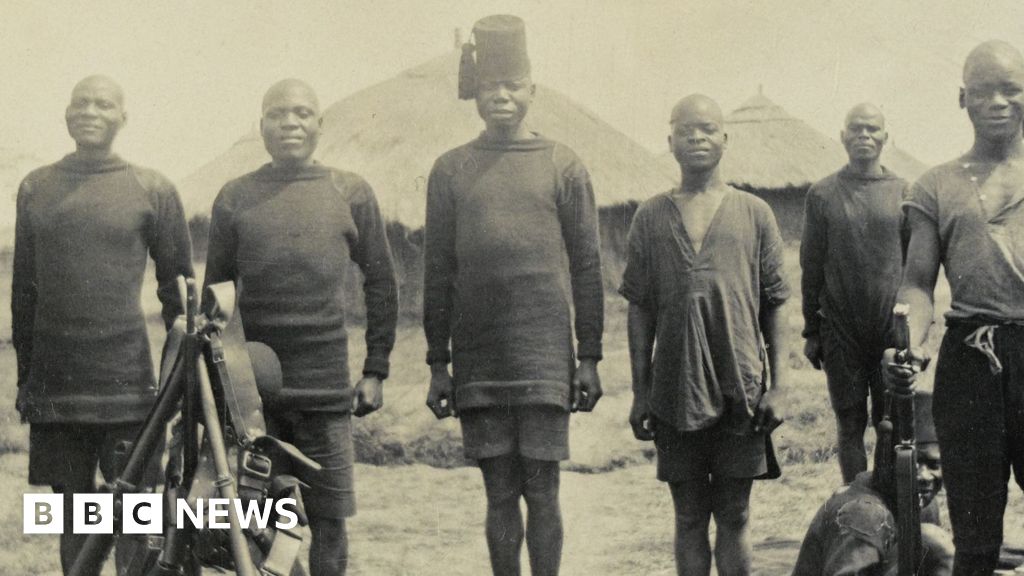'They went and never came back': Honouring Kenya's forgotten World War soldiers

```html Kenya's Forgotten World War Soldiers Honoured Decades Later
For decades, the sacrifices of thousands of Kenyan soldiers who fought for the British Empire in both World Wars have remained largely unrecognised. Many died far from home, their families left in the dark about their fate. Now, a renewed effort by the Commonwealth War Graves Commission (CWGC), in collaboration with the Kenyan Defence Forces, is unearthing their stories and working to ensure their service is finally commemorated.
Unearthing Lost Histories
The CWGC has discovered a trove of rare colonial military records dating back to World War One, revealing the names and stories of over 3,000 East African soldiers. These records, previously thought to have been destroyed, detail the service of men who fought in the King's African Rifles (KAR), a regiment comprised of soldiers from across East Africa.
The KAR fought against German forces in present-day Tanzania during World War One and against Japanese troops in Myanmar during World War Two. The newly discovered records offer a glimpse into the lives of these men, including details about their enlistment, service, and, in many cases, their deaths.
A Family's Long Wait for Answers
One such story is that of Mutuku Ing'ati, who left his village in southern Kenya around 85 years ago and never returned. His family searched for him for years, but his fate remained a mystery. It was only recently that his nephew, Benjamin Mutuku, was contacted by the CWGC and informed that his uncle had enlisted in the East African Scouts and was killed in action on June 13, 1943. The exact location of his death and burial remains unknown.
"I used to ask my father, where is the person I was named after?" says Mr. Mutuku, now 67. While grateful for the information, he expresses sadness that his uncle's body is not buried in their ancestral land, a practice of great importance to the Akamba community.
The Importance of Remembrance
The CWGC's work comes as the UK marks Remembrance Sunday, a day to honour those who served in the armed forces. For many Kenyan families, this renewed effort offers a chance to finally learn about the contributions of their relatives and to ensure their sacrifices are not forgotten.
"These are not just dusty files - they are personal stories. For many African families, this may be the first time they learn about a relative's wartime service," says George Hay, a historian at the CWGC.
Historical Context: Colonial Recruitment and Unequal Recognition
During both World Wars, the British Empire recruited millions of soldiers from its colonies, including significant numbers from across Africa. However, the contributions of these soldiers were often overlooked, and they were not formally commemorated in the same way as their white counterparts. This disparity reflects the broader inequalities of the colonial era.
According to Dr. Alice Wanjala, a historian specializing in East African military history at the University of Nairobi, "The recruitment of African soldiers was driven by the manpower needs of the British Empire, but their service was often treated as secondary. This neglect in commemoration is a continuation of that historical pattern."
Moving Forward: Memorials and Education
The CWGC and the Kenyan Defence Forces are working to identify the burial locations of these forgotten soldiers and to build memorials to commemorate their service. They also hope to incorporate these stories into Kenya's school curriculum, ensuring that future generations understand the significant role Africans played in the world wars.
"The process that is taking place is ensuring that those thousands of people who went away and never came back... we keep their memories going so that we don't forget them," says Patrick Abungu, a historian at CWGC's Kenya office, whose own great uncle was conscripted during World War One and never returned.
The CWGC emphasizes that this is an ongoing effort, with no end date in sight. Their commitment is to continue recovering the details of Kenyan individuals who served in the British forces until every fallen soldier is commemorated.
Dr. Wanjala adds, "It's crucial to acknowledge the complex motivations behind African participation in these wars, ranging from economic opportunity to a sense of duty. By understanding their stories, we can gain a more complete picture of the impact of global conflicts on the African continent."
Related Topics:
World War One: Kenya's forgotten heroes British colonial history in East Africa The Commonwealth War Graves Commission
```
Originally sourced from: BBC News Africa
